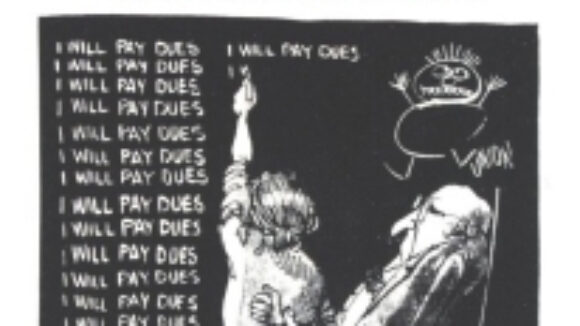Could a Wisconsin-style union backlash happen in Maryland? It should
Government employee union woes are being felt from California to Maryland. George W. Liebmann, executive director of the Calvert Institute for Policy Research Inc., lists several problems in Maryland in his Baltimore Sun op-ed: Marylanders need instruction in how entrenched the state's teachers' unions are: 1. Eleven counties, including all the more populous ones, allow unions to collect "agency fees" from nonmembers, generating huge war chests. While in theory such fees are not supposed to be used for political purposes, a famous [NRTW] lawsuit in Washington state revealed that nearly 80 percent of "agency fees" are in fact so used. 2. The State Board of Education has only qualified authority over teacher certification. A special board, eight of whose 24 members are named by unions and six of whom are from teachers' colleges, can only be over-ridden by a three-fourths vote of the State Board. 3. Under a law signed by Gov. Martin O'Malley last year, another special board, two of whose five members are named by unions, has the last word in resolving impasses in school labor negotiations. 4. Local union contracts impose maximums on the length of the school year, limitations originally derived from the needs of agricultural societies 5. Maryland's charter school law is one of the few that binds charter school teachers to union contracts, and it provides few checks against refusal of applications by self-protective county boards. Experimentation with "virtual schools" and distance learning is limited by a law binding employees to union contracts. 8. Contracts severely limit teacher attendance at PTA meetings, in some counties to two hours per year; and at post-school meetings, frequently to one hour a month. Evaluations and observations are severely limited; only a handful of teachers are ever found to be incompetent. 9. In all but three counties, third-party arbitrators, rather than the local board of education, are given the last word in grievance proceedings. There is a three-to-five step grievance procedure, making discipline of tenured teachers all but impossible. Out of a tenured force of more than 5,600, no more than two Baltimore City teachers were fired for cause, per year, between 1984 and 1990.

